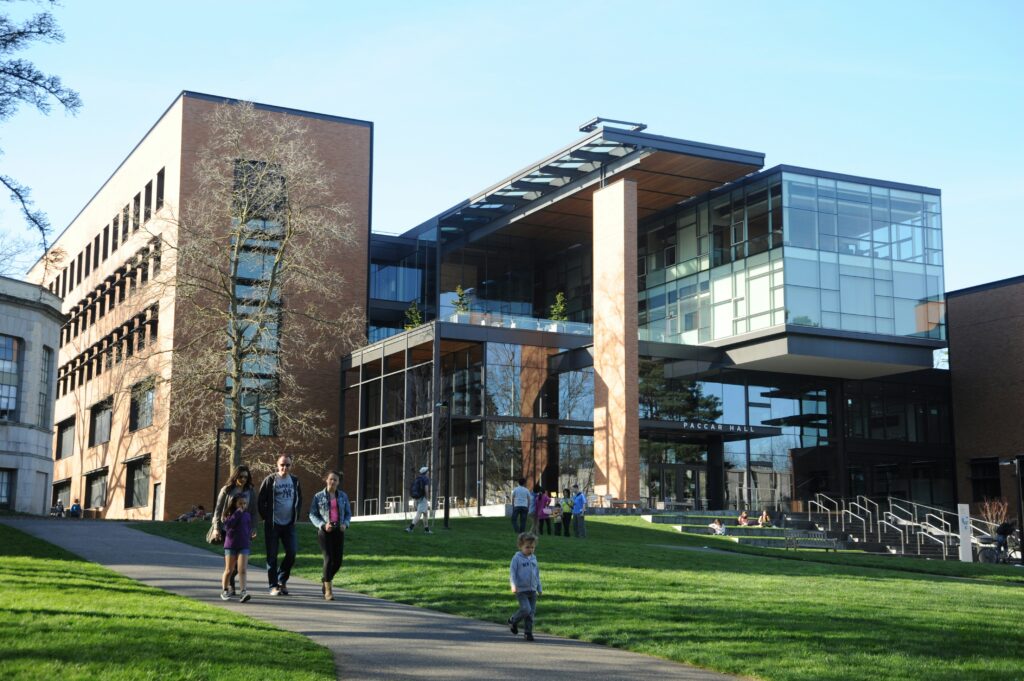The Trump administration has launched a federal investigation into the University of Washington after a pro-Palestinian protest on campus led to the arrest of around 30 people. Officials claim the protest involved “antisemitic violence,” but have yet to offer any direct examples of such behavior during the event.
The protest, led by the student group Super UW, took place at the Interdisciplinary Engineering Building on the Seattle campus. Organizers called on the university to cut all ties with Boeing, citing the company’s military contracts with Israel. The group also demanded that the building be renamed in memory of a Palestinian student who was reportedly killed in Gaza during recent fighting.
Campus Protest Sparks Legal Trouble
According to university officials, the protest quickly escalated beyond peaceful demonstration. Students and other activists entered the engineering building and staged an occupation. Spokesperson Victor Balta said the group caused damage to the building, blocked nearby streets, and even started small fires. As a result, police were called to remove the protesters, leading to about 30 arrests.
The charges under review include trespassing, property damage, and disturbing the peace. Balta called the protest “unlawful and dangerous,” stating that the safety of students, faculty, and emergency workers was at risk. He also criticized a public statement released by Super UW, labeling it antisemitic, though he did not share specific language from the document.
Protest organizers have denied any form of hate speech. Instead, they claim the police used excessive force during the arrests. According to the group, at least three individuals had to be hospitalized after police intervention. Videos from the scene show officers in riot gear clashing with students, though the full context of the altercation remains unclear.
Federal Government Demands Tougher Campus Rules
A day after the protest, three major government agencies—the Department of Education, the Department of Health and Human Services, and the General Services Administration—released a joint statement on the incident. They praised the university for responding quickly but argued that more needs to be done to protect Jewish students and staff.
The Task Force to Combat Antisemitism, a federal body created by the Trump administration, has called for new campus policies. These would include stricter rules on protest behavior, clearer disciplinary procedures, and more training for staff on recognizing and addressing hate speech.
Education Secretary Linda McMahon issued a strong warning. She said that while freedom of speech is important, protests should not interfere with learning or threaten the safety of any student group. “Universities must take firm action to prevent campuses from becoming hostile environments,” she said.
Part of a Larger Crackdown on Campus Protests
This investigation is one of many launched by the Trump administration in recent months. The government has accused over 60 universities of allowing antisemitism to flourish under the cover of political activism. Schools that fail to comply with federal rules have been threatened with funding cuts.
Columbia University recently lost access to more than $400 million in federal grants after it was found to have violated these rules. The university later agreed to change several campus policies to regain funding. Harvard University is now locked in a legal battle with the administration after its funds were frozen. The school argues that federal officials are trying to interfere with academic freedom and student rights.
Critics say the government is using the threat of funding cuts to silence pro-Palestinian voices on campus. Supporters argue that stronger action is needed to protect Jewish students from discrimination and harassment.
Campus Tensions Mirror Global Divide
The University of Washington protest reflects wider tensions across the United States. As the conflict between Israel and Hamas continues in Gaza, many students have taken to campuses to speak out. Some call for peace and dialogue, while others demand more direct action, like cutting ties with companies linked to military aid.
These protests have sparked fierce debates about freedom of speech, the definition of antisemitism, and the limits of civil disobedience. University leaders are under pressure from all sides—to protect student rights, to ensure campus safety, and to stay in line with federal guidelines.
At the University of Washington, officials say they are reviewing policies related to student protests and free expression. In a statement, the university reaffirmed its commitment to opposing all forms of hate, including antisemitism and Islamophobia. “We support peaceful protest,” the statement read, “but not when it threatens the safety or wellbeing of others.”
The federal investigation into the University of Washington is still in its early stages. It remains unclear what penalties, if any, the university could face. However, the event adds to a growing list of campus controversies linked to the Israel-Palestine conflict.
As universities face rising pressure from both students and the government, the balance between protest rights and campus safety continues to be tested.
